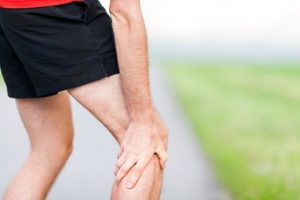
Paying attention to how your muscles feel, even in older age, can offer you some insight into your health needs.
6 things your muscles are trying to tell you
You need to rest: If you are an avid exerciser and you can’t seem to shake off that muscle soreness, you may have to take a break. When you exercise your muscles develop tiny tears, but if you overdo it, these tears cannot heal properly. This also increases the risk of injury so just as it is important to exercise it’s also important to rest.
You pulled a muscle: In some cases, soreness after a workout may indicate an injury – but how can you tell the difference? Sports medicine physician Vijay Jotwani explains, “A muscle strain often involves the sudden onset of pain during certain movements in one muscle, whereas post-workout soreness begins up to 72 hours after exercise. Post-workout soreness will often occur on both sides of the body, whereas soreness from a pulled muscle will typically only occur on one side.”
You’re not drinking enough water: Muscle cramps and spasms can be triggered by dehydration, so ensuring that you are well hydrated – regardless of your exercise level – is a good way to prevent these painful episodes.
You need electrolytes: Your mineral levels may deplete while working out or ever sweating excessively. As a result, you may experience cramping, injury, or even pain. To replenish your levels of electrolytes and maintain a proper balance, you will need a sports drink or eat foods like bananas, salted peanut butter, or milk.
You’re sick: If you haven’t performed any exercise in a while, but your muscles are aching, it could be a sign of illness. Illness can trigger inflammation of the muscles, causing pain. Some medications can also lead to the same result, so if you’ve started a new treatment course, speak to your doctor about achy muscles as a possible side effect.
You drank too much alcohol: The same inflammatory response as in the case of illness can also be triggered by alcohol, causing achy muscles. Moreover, alcohol leaves you dehydrated, so the combination of insufficient hydration and inflammation can lead to sore muscles.
It’s important that you listen to your body in order to prevent injury and other complications.
Related: 4 ways to build muscle without exercise